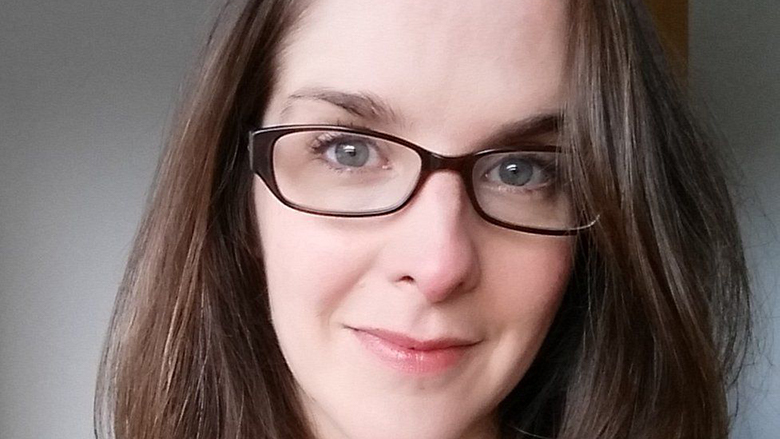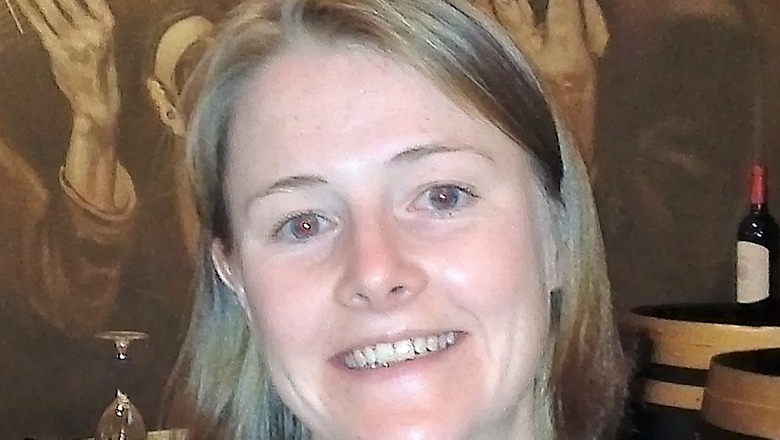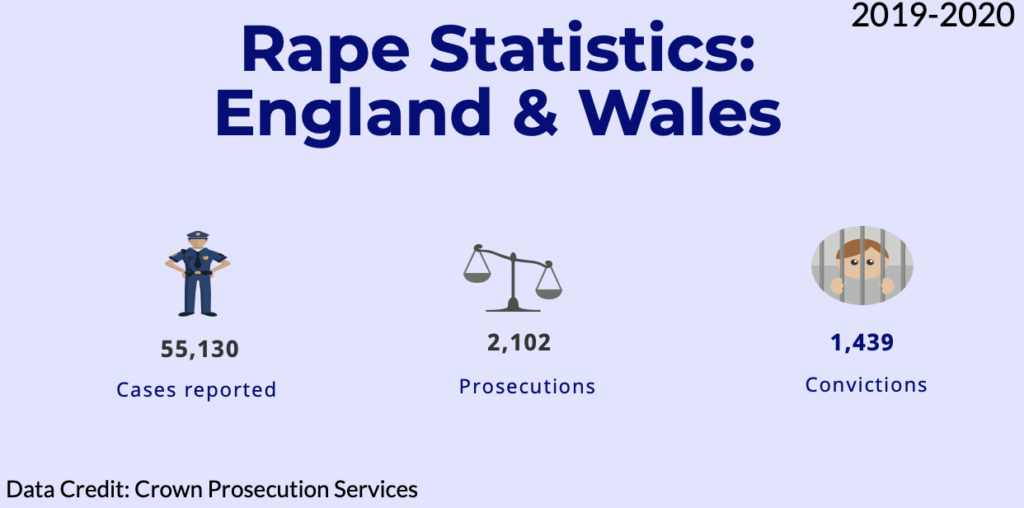Why are lowest conviction rates being noted in the United Kingdom when crimes against women are high in number?

Justice is sometimes elusive. But, for sexual assault victims, it might be more so for women in the United Kingdom.
About 80% of women in the UK have been sexually harassed. However, Crime Prosecution Services data shows the lowest conviction rates for 2019.
Katie Russell, National Spokesperson for help and information centre Rape Crisis said, “We’re at a crisis point.”

Someone is raped in England and Wales every five minutes. In 2019-20, England and Wales recorded 55,130 rape cases and as per data released by Crown Prosecution Services, the conviction rates have halved in the last three years.
Katie said, “It’s an absolute failure of justice for the victims of sexual violence. Everyone who has an involvement or a stake in it really should be seeing this situation as the national emergency it is.”
Since only 15% of such cases are reported, as per data by the Ministry of Justice, total number of estimated rapes might be as high as 367,533. However, the number of convictions is just 1,439. Vikki Robinson, Operational Support Manager for specialist sexual violence services agency The Survivors’ Trust said, “As it stands at the moment, if you are raped you are unlikely to see justice.”

Explaining the contributing causes of low conviction rates, Katie said that a vast majority of sexual offenders are people who already knew the victim and that this can add layers of complexity:
“Physical forensic evidence collected in these cases might not be relevant because the defendant might not even be disputing that sexual activity took place. Instead, they might be disputing the claim that the presence of consent. This can get difficult.”
As per joint official statistics bulletin on sexual violence, about 90% of victims know the perpetrator prior to the offence.

She said that a shift in focus in the Crown Prosecution Service (CPS) is also playing a role in low conviction rates: “Earlier, they took merit-based approach to actively prosecute sexual offence cases. In recent years, they’ve started to take a risk-averse approach. Police would say that they are sending fewer cases to CPS because they know through experience that cases which don’t have an extraordinarily high level of evidence would be sent back by CPS.”
The adversarial system of courtrooms isn’t appropriate to sexual offences cases as it can be traumatising for victims.
Vikki explained the problem of adversarial system: “Victims are expected to give evidence, face cross-examination with no direct representation. Their attacker, however, is represented by a defence barrister who will do everything to undermine victim’s credibility. It can be a lonely and traumatic experience.”
Additionally, pre-pandemic, the criminal justice process took about 6-18 months to complete. “Survivors feel that is too long. The sheer length of the criminal justice process makes victims drop out of the system,” said Katie.
This sentiment was echoed by Vikki, “Survivors feel like their life is on hold. They withdraw from the process because the experience is traumatic. They see little chance of conviction and want to move on with their lives.”
Explaining why there are lower number of rape cases reported, Katie said: “Victims tell us that there is a fear of not being believed. Some say they weren’t believed when they first reported, or that police tried to persuade them to drop their case, especially if they have been drinking, warning them that there’s likely not enough evidence. The sad truth is that some of that advice is actually true. Chances of criminal justice are low.”
However, she said that police officers who give such well-meaning advice unintentionally reinforce victim’s feelings of self-blame, making them feel that they are not worthy of justice. There is a need for officers to learn how to respond appropriately and sensitively to victims.
Vikki said, “Deciding to report a sexual assault is a huge decision. If survivors go to the police, they want to be treated fairly and with respect. All too often they are not.”
